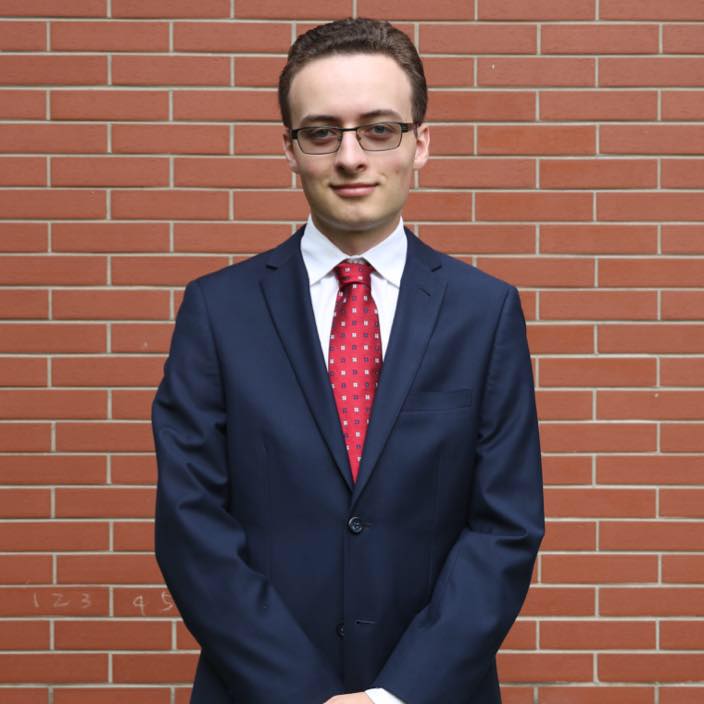By Wellington Baumann, Columnist
As I watched President Trump’s Oval Office address on the coronavirus, I was left with the impression of another presidential address given in that same room 40 years ago. Then-President Jimmy Carter told an apprehensive nation that it suffered from a “crisis of confidence.” At the time, the western world endured an energy crisis derived from OPEC’s oil embargo and rampant inflation. With gas lines stretching for miles, President Carter took to the small screen in a prime-time address to give the nation a much needed pep talk. He explained how, “all the legislation in the world can’t fix what’s wrong with America … The threat is nearly invisible in ordinary ways. It is a crisis of confidence. It is a crisis that strikes at the very heart and soul and spirit of our national will.”
President Carter laid his cards on the table. Though it may have been the truth, people did not like hearing that the government cannot fix their problems. Subsequently, President Carter failed to reinvigorate public faith in 1979, but perhaps his words can give us some guidance today.
The coronavirus presents a unique challenge to the world. No human has ever contracted COVID-19 until now, leaving doctors speculating what the full impact will be. We have seen over the past few months that the coronavirus is easily transmitted and presents the greatest risk to people over 60 with underlying health complications. However, for most people, catching the coronavirus is reminiscent of the seasonal flu. They have a cough and fever, stay in bed for a few days, but eventually recover. Though the mortality rate of COVID-19 varies depending on the source, it is surely higher than the common flu. That said, the coronavirus is not the Spanish Flu or the Bubonic Plague. But it is not the mortality or infection rate that make the coronavirus truly dangerous, it is the unknown. All of the uncertainty surrounding the novel coronavirus has sparked panic. Entire countries are quarantining, colleges are sending students home, and people are swarming supermarkets wiping the shelves clean of toilet paper and hand sanitizer to prepare for a month-long siege. This pandemonium cannot be the answer.
In our globalized world, the sudden halt of the movement of people and goods will trigger ramifications greater than any threat presented by the coronavirus. As I write, markets have reacted violently to the specter of sudden global economic gridlock. In one week, the Dow Jones Industrial Average and the S&P 500 lost all gains made within the past year, marking the end of the longest bull market on record. The yield curve on 10-year U.S Treasury bonds fell to an all-time low. In reaction, the Federal Reserve lowered interest rates to historic lows and announced yesterday that it will pump $1.5 trillion into the economy, but investors are unimpressed. The desperate acts of government to spur the economy pale in comparison to the greatest force in human history, our confidence. Or more accurately, our lack of it.
This pandemonium cannot be the answer.
The way we choose to react will have a greater impact on the foreseeable future than any viral strain. A virus alone does not cripple global supply-chains, we do. A virus alone does not shut down schools across the nation, we do. A virus alone does not quarantine entire cities, we do. A virus alone does not barricade people in homes for months, we do. The fuel that keeps the engine humming, the catalyst of economic growth, the very essence of what it means to live in a society is public confidence. Confidence in the system. Confidence that life will go on. Only when we lose that confidence will we suffer the worst of consequences.
The coronavirus does require that we temporarily change our behavior. We should frequently wash our hands, not touch our faces, stay at home if we exhibit any symptoms, and avoid unnecessary interactions with the elderly who are the most susceptible to the coronavirus. We may even have to quarantine certain areas to control the spread. However, we should not devolve into a mass panic, board up the windows, grind international trade to a halt, and devastate our local economies because of a virus that, to the majority of people, is tantamount to the seasonal flu.
Our modern crisis of confidence is not novel. We should have faith that we will persevere because we alone control our destiny. In the words of President Carter, “the erosion of our confidence in the future is threatening to destroy the social and the political fabric of America.” If we confront our problems head on and do not allow them to control us, then we will endure. Until then, we suffer from a seasonal strain of the crisis of confidence.

